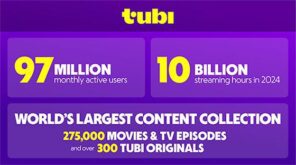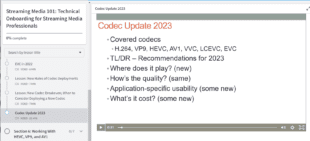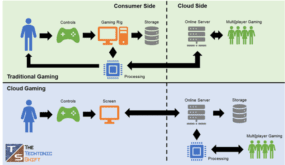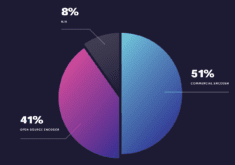
Briefly, as you may recall, Google acquired the VP8 codec when they purchased codec developer On2, in a deal that closed early this year. Today, they announced that they will make the codec open source and royalty free to all comers, and that they were creating a new format and file extension called webm to house the VP8 video codec and Vorbis audio codec, which is also open source. The new format can be played via the HTML5 video tag in all supporting browsers, which will include Google’s own Chromium browser, and future versions of Mozilla Firefox and the Opera Browser.
In an unexpected turn, Adobe announced that they will support the VP8 codec in an “upcoming release” of Flash, making the new codec compatible with all Flash compatible browsers, which includes pretty much all browsers except those on Apple’s iDevices. Microsoft also announced that they will support VP8 in Internet Explorer if it’s already installed on the computer, which means they won’t include a VP8 decoder with the browser, as Google, Opera and Firefox will.
In a related article for StreamingMedia, I compared the quality of VP8 with H.264, and found VP8 clearly inferior, though not by a wide margin. For the record, I used files created by Sorenson Media (one of the many vendors that announced VP8 encoding support), and I’ll likely supplement this analysis with my own encoding trials when I get my hands on a VP8 desktop encoding tool.
You can find a much more detailed comparison in the Diary of an x264 Developer blog, which concludes that “Overall, VP8 appears to be significantly weaker than H.264 compression wise,” and also that VP8 may have patent issues. Specifically, the blog comments “Finally, the problem of patents appears to be rearing its ugly head again. VP8 is simply way too similar to H.264: a pithy, if slightly inaccurate, description of VP8 would be “H.264 Baseline Profile with a better entropy coder.”
Overall, it’s tough to say that any x264 developer would be impartial regarding VP8, but the analysis does seem logical and fact-based, so check it out and see for yourself.
As part of my StreamingMedia article on VP8/webm, I asked MPEG-LA, who controls the H.264 patent pool, for a response to the Google announcement. Their response was added as an update to the article that you can read at the bottom of the page, here.
Though obscure, their response does tend to indicate the organization’s belief that VP8 may infringe on some of the patents owned by the H.264 patent group, of which Microsoft and Apple are members. This may be the reason that Microsoft will support VP8 if installed on the system, but won’t incorporate the codec into their own product.
To be fair, MPEG-LA doesn’t shy away from alluding to patent claims, and indicated in one email months ago that Ogg Theora may also infringe on H.264 patents. To my knowledge, MPEG-LA never pursued any claims against Xiph, but Apple frequently referred to the potential existence of “submarine patents” as their reason for not supporting Ogg Theora in its bid to become the designated HTML5 codec.
Still, few outside of the Xiph community ever saw Theora as a credible threat to H.264, and VP8 and Google clearly are. It wouldn’t make sense to sue Xiph for an injunction, since they likely would never cost the patent group significant revenue, but VP8 unchecked almost certainly will. If MPEG-LA believes that VP8 does infringe on their H.264 patent rights, it makes sense to bring action sooner than later, because if they wait too long, a doctrine called laches may bar recovery of some damages.
What the Heck is Laches? To explain, here’s a quick blurb from the website of patent law firm Wilmer Hale.
Laches is an equitable defense that arises from a delay in taking action. Laches defenses have been successful in cases in which a patent owner knows about an infringement and then delays many years before bringing suit. Laches typically bars the recovery of any past damages but allows for the recovery of damages arising after the filing of the lawsuit.
If MPEG-LA is gonna act on this, it will likely be soon. Google paid over $120 million to acquire On2; they may have to spend quite a bit more to actually use the VP8 techology.
 Streaming Learning Center Where Streaming Professionals Learn to Excel
Streaming Learning Center Where Streaming Professionals Learn to Excel







